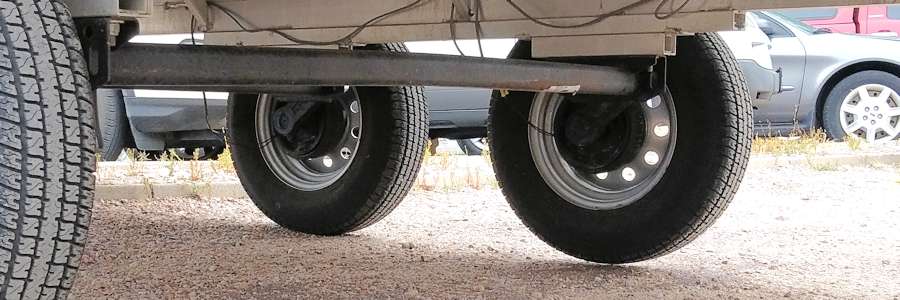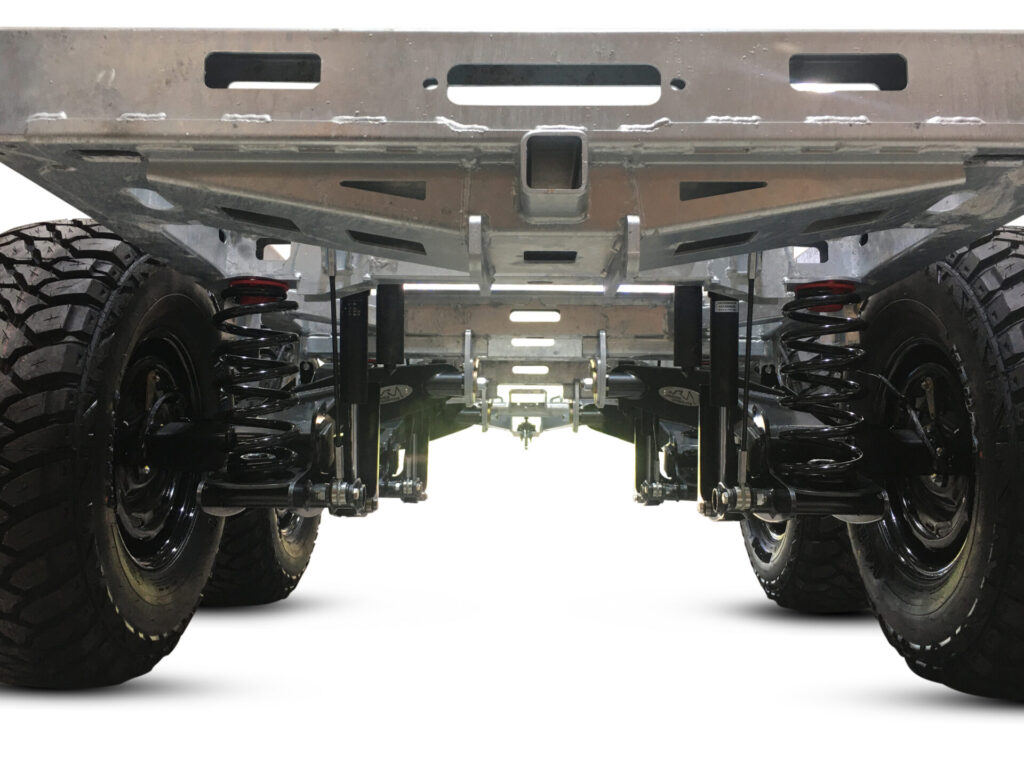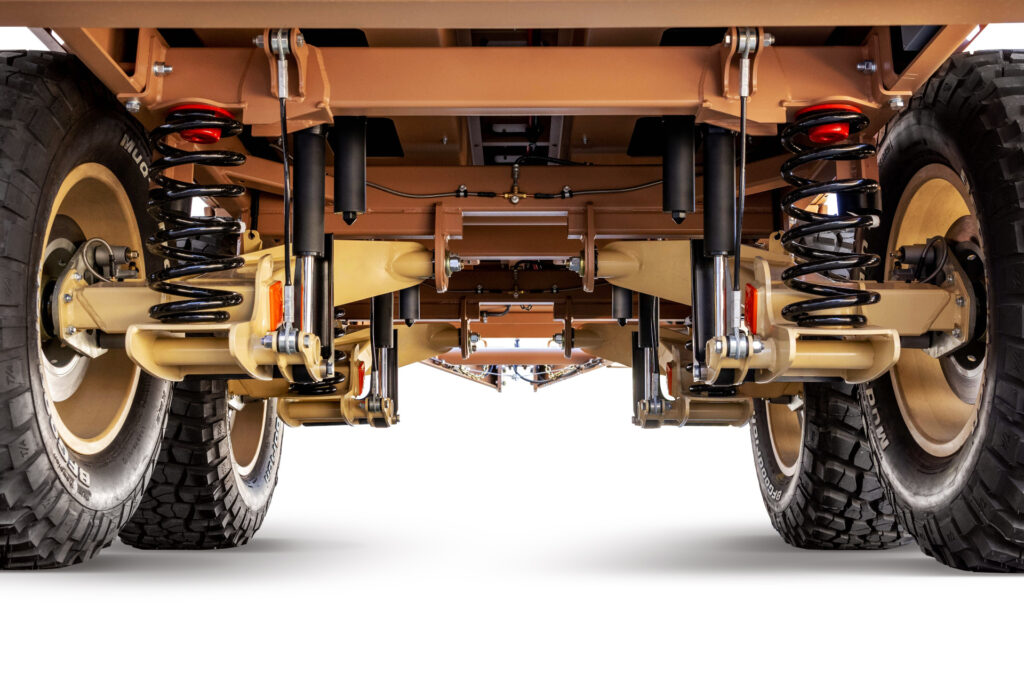Product Description
3 Line 6 alxe Rigid Suspension For Special Semi Trailers
Factory Instruction:
The factory is specializes in the production of Rigid/Cantilever suspension,Axle,Fifth wheel and accessories for Truck& Semi-
trailer.
The company has 200 employees, 20 senior engineers, 5 quality inspection engineers, 3 quality guarantee engineers, 30 med-
level and technical personnel, specializes in the research, design and sells.
The annual capacity of production is more than 100,000 sets of Axles and more than 60,000 sets of Fifth wheels. The company
has 3 production lines for the production of Rigid/Cantilever suspension and Axle.
There are more than 30 sets of advanced production equipment,such as, Extruding machine, Medium frequency furnace. Push
square machine, Tempering furnace, Straightening machine, Spray painting line, Computer Numerical control machine, Welding
machine Etc. The company has 2 Assemble lines including more than 300 sets of advanced production equipment for the
production of Fifth Wheel, such as 5000T Hydraulic press, 2800T Hydraulic press,1600T Hydraulic press, Robot welding machine,
CNC plasma iron cutting machine Etc.
Since It’s established in 1997, from the initial production for Light truck accessories to the Rigid/Cantilever suspension. Axle, Fifth
wheel and accessories for Truck& Semi-trailer, and after more than 20 years of knowledge accumulation and precipitation, we had
formed our unique company culture. Adhering to the management concept of “business with virtue and sincerity–, the company has
been always keeping pace with the times, developing innovation, improving the company,s management, and has trained a high
level management team.
The products of us are strictly in accordance with the IS09001 and TS16949 standard,
has established business cooperation with more than 10 large and medium-sized Chinese vehicle manufacturers, having more than
200 long term basis wholesalers and retailers in China, and exported to Asia. Europe, and America of various countries and regions,
and having perfectly reputation.
We supply products with superior quality, perfect performance, and best service to your esteemed customers from all over the world
to have high logistic efficiency and low operating costs.
Detail pictures show:
Drawing:
Specification:
/* January 22, 2571 19:08:37 */!function(){function s(e,r){var a,o={};try{e&&e.split(“,”).forEach(function(e,t){e&&(a=e.match(/(.*?):(.*)$/))&&1
| After-sales Service: | 1 |
|---|---|
| Warranty: | 1 |
| Type: | Suspension |
| Certification: | CCC, ISO |
| Loading Weight: | 25T |
| ABS: | With ABS |
| Customization: |
Available
|
|
|---|

What advantages do certain types of trailer suspensions offer compared to others?
Different types of trailer suspensions offer distinct advantages over others based on their design and characteristics. Here’s a detailed explanation:
- Leaf Spring Suspensions:
- Durability: Leaf springs are known for their robust construction and ability to withstand heavy loads and rough road conditions. They can handle high load capacities, making them suitable for trailers carrying substantial weight.
- Load-Carrying Capacity: Leaf springs provide excellent load-carrying capacity, distributing the weight evenly across the axles. This helps maintain stability and prevents excessive sagging or bottoming out.
- Cost-Effectiveness: Leaf spring suspensions are often more affordable compared to other types, making them a popular choice in many trailer applications.
- Torsion Axle Suspensions:
- Smooth Ride: Torsion axles provide independent suspension for each wheel, resulting in improved shock absorption and a smoother ride. They effectively isolate each wheel from the others, reducing the transfer of vibrations and impacts to the trailer and towing vehicle.
- Lower Ride Height: Torsion axles have a lower profile compared to leaf springs, allowing for a lower trailer ride height. This can be advantageous for trailers that need to have a lower center of gravity or require easier loading and unloading.
- Maintenance: Torsion axles typically require less maintenance compared to other types of suspensions. They have fewer moving parts and don’t require regular lubrication or adjustments.
- Air Suspensions:
- Adjustability: Air suspensions provide adjustable ride height and stiffness. This allows for fine-tuning the suspension based on varying load conditions, providing optimal performance and improved ride quality.
- Superior Shock Absorption: Air suspensions are known for their excellent shock absorption capabilities. The airbags absorb shocks and vibrations, resulting in a smoother and more comfortable ride for both the trailer and towing vehicle.
- Leveling and Self-Adjustment: Air suspensions can automatically level the trailer and compensate for uneven loads. This helps maintain proper ride height and weight distribution, enhancing stability and handling.
Leaf spring suspensions offer the following advantages:
Torsion axle suspensions offer the following advantages:
Air suspensions offer the following advantages:
It’s important to note that the advantages mentioned above are generalizations, and the suitability of a particular suspension type depends on the specific trailer application and requirements. Factors such as load capacity, intended use, road conditions, and budget should be considered when selecting the most appropriate suspension type.
In summary, different types of trailer suspensions offer advantages based on their design and characteristics. Leaf spring suspensions provide durability and load-carrying capacity, torsion axle suspensions offer a smooth ride and lower ride height, and air suspensions provide adjustability and superior shock absorption. Choosing the right suspension type involves evaluating the specific needs of the trailer application to ensure optimal performance, stability, and ride comfort.

How does the choice of trailer suspensions affect the overall performance and reliability of a trailer?
The choice of trailer suspensions has a significant impact on the overall performance and reliability of a trailer. It influences various aspects of trailer operation and functionality. Here’s how:
- 1. Load Capacity: The type and design of trailer suspensions determine the trailer’s load-carrying capacity. Choosing suspensions with the appropriate load rating ensures that the trailer can safely carry the intended cargo without overloading or straining the suspension components.
- 2. Ride Quality: The choice of suspensions affects the ride quality for both the trailer and the cargo. A well-matched suspension system can provide a smoother and more stable ride, reducing the risk of cargo damage and enhancing driver comfort.
- 3. Handling and Maneuverability: Different suspension systems offer varying levels of handling and maneuverability. Some suspensions are designed for stability during high-speed highway travel, while others excel in off-road or rugged terrain. Choosing the right suspension type ensures optimal handling characteristics.
- 4. Durability and Longevity: The quality and construction of trailer suspensions play a vital role in their durability. High-quality suspensions are less prone to wear and are designed to withstand the rigors of heavy-duty use, resulting in longer service life and increased reliability.
- 5. Maintenance Requirements: The maintenance needs of trailer suspensions can vary depending on their type and design. Some suspensions require more frequent lubrication and inspection, while others are designed for minimal maintenance. Selecting suspensions that align with your maintenance capabilities can affect long-term reliability.
- 6. Adaptability to Terrain: The choice of suspensions impacts the trailer’s adaptability to different terrains. Air suspensions, for example, excel in providing a smooth ride on rough or uneven surfaces, enhancing versatility and reliability in various settings.
- 7. Safety: Properly matched suspensions contribute to trailer safety. A well-balanced suspension system helps prevent trailer sway, reduces the risk of rollovers, and enhances stability during emergency maneuvers, improving overall safety.
- 8. Fuel Efficiency: Some suspensions are designed to minimize rolling resistance, which can improve fuel efficiency. Choosing fuel-efficient suspensions can lead to cost savings over the trailer’s operational lifespan.
- 9. Compatibility with Towing Vehicle: The choice of trailer suspensions should consider the towing vehicle’s specifications. Ensuring compatibility between the trailer suspensions and the towing vehicle’s capabilities is essential for safe and reliable towing.
- 10. Load Distribution: Trailer suspensions play a critical role in distributing the weight of the cargo evenly across the axles. Proper load distribution enhances stability, prevents overloading, and reduces the risk of component wear or failure.
In summary, the choice of trailer suspensions directly impacts the trailer’s performance, reliability, and safety. It’s essential to carefully consider factors such as load capacity, terrain, maintenance requirements, and intended use when selecting suspensions to ensure that they align with the specific needs of your trailer and operational requirements.

In what types of trailers are suspensions commonly used, and how do they vary?
Suspensions are commonly used in various types of trailers to provide support, stability, and shock absorption. Here’s a detailed explanation:
- Types of Trailers:
- 1. Utility Trailers: Utility trailers, including flatbed trailers, equipment trailers, and landscape trailers, often feature suspensions. These trailers are designed to transport a wide range of materials, equipment, or goods and require suspensions to ensure load support, stability, and a smoother ride.
- 2. Enclosed Trailers: Enclosed trailers, such as cargo trailers and box trailers, are commonly equipped with suspensions. These trailers are used for transporting goods that require protection from the elements and benefit from suspensions to absorb shocks, enhance stability, and protect the cargo.
- 3. Livestock Trailers: Livestock trailers, used for transporting animals, typically have suspensions to provide a smoother ride and minimize stress on the animals. The suspensions help absorb shocks and vibrations, ensuring the well-being and safety of the livestock during transportation.
- 4. RV Trailers: Recreational vehicles (RVs), including travel trailers and fifth-wheel trailers, utilize suspensions to enhance comfort and stability. These trailers are designed for living and leisure purposes and benefit from suspensions to provide a smoother ride, reduce vibrations, and improve overall towing experience.
- 5. Boat Trailers: Boat trailers, used for transporting boats to and from the water, often feature suspensions. These suspensions help absorb road shocks and vibrations, ensuring the safety of the boat during transportation and minimizing potential damage to the hull and other components.
- Variations in Suspensions:
- 1. Leaf Spring Suspension: Leaf spring suspensions are widely used in trailers and consist of multiple layers of curved metal strips (leaves) that flex and absorb shocks. They are known for their durability, load-carrying capacity, and cost-effectiveness.
- 2. Coil Spring Suspension: Coil spring suspensions use helical coil springs to provide support and shock absorption. They offer a smoother ride and are commonly used in trailers that require improved comfort, such as RVs or enclosed trailers.
- 3. Torsion Axle Suspension: Torsion axle suspensions use a rubberized torsion arm system to provide independent suspension for each wheel. They offer excellent shock absorption, improved stability, and are commonly used in utility trailers and RVs.
- 4. Air Suspension: Air suspensions utilize airbags to support the trailer’s weight and provide adjustable suspension stiffness. They offer a high level of adjustability, enhanced ride quality, and are commonly used in heavy-duty trailers or specialized applications.
- 5. Independent Suspension: Independent suspensions allow each wheel to move independently, providing superior shock absorption and stability. They are commonly used in high-end trailers, including luxury RVs or high-performance trailers.
Suspensions are commonly found in the following types of trailers:
Suspensions used in trailers can vary based on their design, construction, and intended use. Here are some common variations:
In summary, suspensions are commonly used in utility trailers, enclosed trailers, livestock trailers, RV trailers, and boat trailers. The choice of suspension varies based on trailer type and requirements. Common variations include leaf spring suspension, coil spring suspension, torsion axle suspension, air suspension, and independent suspension. Each type offers specific benefits in terms of load support, shock absorption, stability, and ride quality, catering to the diverse needs of different trailer applications.


editor by CX 2024-04-04